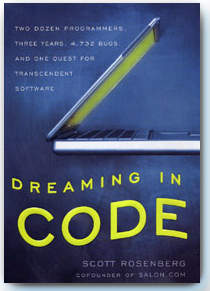Working from home
I get up in the morning, shave, eat breakfast and make sure all family members get off as they should. Most days I walk my son to school (some 800 meters) and then back again. When they’re all gone, the house is quiet and then me and my cup of coffee go upstairs and my work day begins.
Systems and accounts
I have spent time this week to setup accounts and sign up for various lists and services. Created profiles, uploaded pictures, confirmed passwords. I’ve submitted stuff and I’ve signed things. There’s quite a lot of systems in use.
My colleagues
I’ve met a few. The Necko team isn’t very big but the entire company is huge and there are just so many people and names. I haven’t yet had any pressing reason to meet a lot of people nor learn a lot of names. I feel like I’m starting out this really slowly and gradually.
Code base
Firefox is a large chunk of code. It takes some 20 minutes to rebuild on my 3.5GHz quad-core Core-i7 with SSD. I try to pull code and rebuild every morning now so that I can dogfood and live on the edge. I also have a bunch of local patches now, some of them which I want to have stewing in my own browser for a while so that I know they at least don’t have any major negative impact!
Figuring out the threading, XPCOM, the JavaScript stuff and everything is a massive task. I really cannot claim to have done more than just scratched the surface so far, but at least I am scratching and I’ve “etagged” the whole lot and I’ve spent some time reading and reviewing code. Attaching a gdb to a running Firefox and checking out behavior and how it looks has also helped.
Netwerk code size
“Netwerk” is the directory name of the source tree where most of the network code is located. It is actually not so ridiculously large as one could fear. Counting only C++ and header files, it sums up to about 220K lines of code. Of course not everything interesting is in this tree, but still. Not mindbogglingly large.
Video conferencing
I’ll admit I’ve not participated in this sort of large scale video conferences before this. With Vidyo and all the different people and offices signed up at once – it is a quite impressive setup actually. My only annoyance so far is that I didn’t get the sound for Vidyo to work for me in Linux with my headphones. The other end could hear me but I couldn’t hear them! I had to defer to using Vidyo on a windows laptop instead.
Doing the video conferencing on a laptop instead of on my desktop machine has its advantages when I do them during the evenings when the rest of the family is at home since then I can move my machine somewhere and sit down somewhere where they won’t disturb me and I won’t disturb them.
Bugzilla
The bug tracker is really in the center for this project, or at least for how I view it and work with it right now. During my first week I’ve so far filed two bug reports and I’ve submitted a suggested patch for a third bug. One of my bugs (Bug 959100 – ParseChunkRemaining doesn’t detect chunk size overflow) has been reviewed fine and is now hopefully about to be committed.
I’ve requested commit access (#961018) as a “level 1” and I’ve signed the committer’s agreement. Level 1 is entry level and only lets me push to the Try server but still, I fully accept that there’s a process to follow and I’m in no hurry. I’ll get to level 3 soon enough I’m sure.
Mercurial
What can I say. After having used it a bit this week without any particularly fancy operations, I prefer git so much more. Of course I’m also much more used to git, but I find that for a lot of the stuff where both have similar concepts I prefer to git way. Oh well, its just a tool. I’ll get around. Possibly I’ll try out the git mirror soon and see if that provides a more convenient environment for me.
curl
What impact did all this new protocol and network code stuff during my work days have on my curl activities?
I got inspired to fix both the chunked encoding parser and the cookie parser’s handling of max-age in libcurl.
What didn’t happen
I feel behind in the implementing-http2 department. I didn’t get my new work laptop yet.
Next week
More of the same, land more patches and figure out more code. Grab more smallish bugs others have filed and work on fixing them as more practice.
Also, there’s a HTTPbis meeting in Zürich on Wednesday to Friday that I won’t go to (I’ll spare you the explanation why) but I’ll try to participate remotely.




